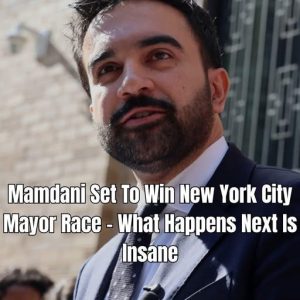House Republicans are exploring constitutional and legal strategies to prevent Mamdani, the front-runner in the New York City mayoral race, from taking office if he wins. The effort is being spearheaded by the New York Young Republican Club (NYYRC), which argues that his past statements — such as urging people to “resist ICE” — and his affiliations with left-wing groups could qualify as “giving aid or comfort to the enemies of the United States.” They cite Section 3 of the 14th Amendment (the so-called “insurrection clause”), which bars someone who “engaged in insurrection or rebellion” or provided assistance to the U.S.’s enemies from public office.
Several House Republicans are examining whether Congress could enforce the clause—via new legislation or a formal resolution—after the election. This approach follows attempts in Colorado to disqualify Donald Trump from the ballot under the same clause, which the Supreme Court ruled requires Congressional legislation. The NYYRC and allied lawmakers see that decision as giving them the authority to act. However, the process is fraught with legal and procedural challenges: a two-thirds vote in both chambers, potential Senate filibusters, and inevitable court challenges.
Beyond the insurrection clause, Republicans are also pressing the U.S. Department of Justice to investigate Mamdani’s 2018 naturalization. They claim he may have violated his oath of allegiance or concealed affiliations with socialist or extremist organizations. Reps. Andy Ogles (R-TN) and Randy Fine (R-FL) have flagged his ties to the Democratic Socialists of America and alleged praise for individuals connected to Hamas. Mamdani has rejected the accusations as politically motivated and bigoted.
In total, what began as a mayoral contest has escalated into a national constitutional flashpoint. The use of the 14th Amendment’s insurrection clause against a mainstream mayoral candidate signals the high stakes and ideological polarization surrounding local races. While the strategy remains untested and its chances uncertain, the attempt underscores deep divisions over immigration, law enforcement, and who is deemed “fit” for public office. If pursued, the move could have longstanding implications for election law and the balance of power between Congress and the states.




